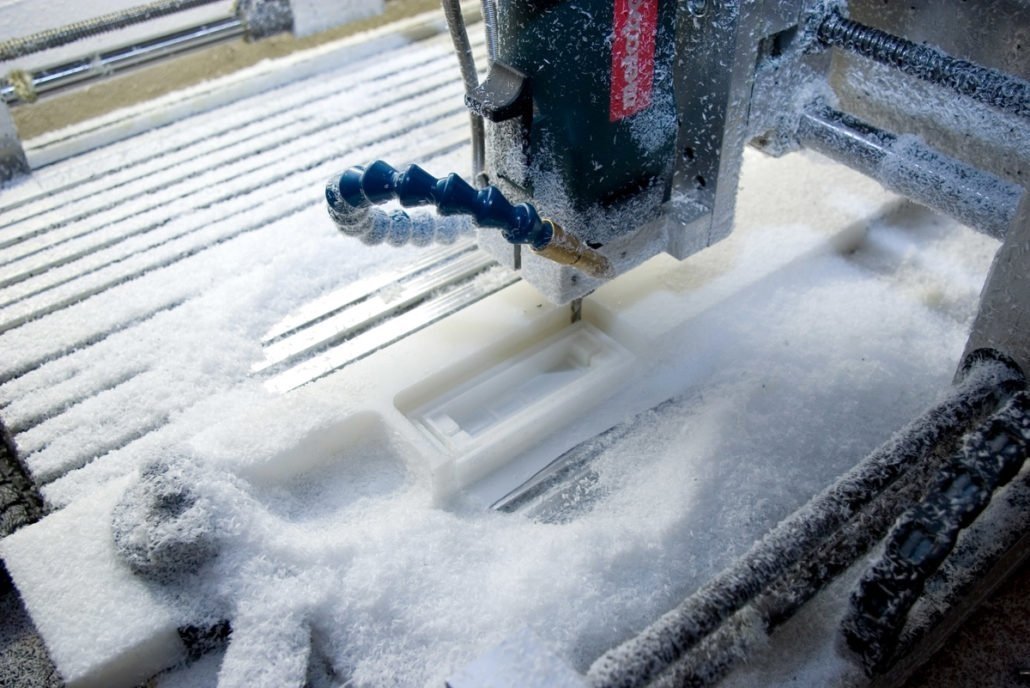How to Choose the Right CNC Material for Your Part (2)
Plastics
Plastic material can be a less expensive alternative to metals if the design does not require the rigidity of metal. Polyethylene is easy to machine, and it is about 1/3 the cost of 6061 aluminum. ABS is typically 1.5 times the cost of acetal. Nylon and polycarbonate are approximately 3 times the cost of acetal. Although plastics could be a cost-effective material alternative, keep in mind that depending on the geometry, tight tolerances can be harder to achieve with plastics, and parts can warp post-machining because of the stress created when material is removed.
Here are a few additional guidelines to consider for choosing the metal or plastic that’s right for your part:
What will your part be used for?
The end environment where your CNC machined part will be used will have the most significant impact on material selection. For example, if you’re using your part outside or in wet environments, use stainless steel as opposed to carbon steel so your part won’t rust. Most of our OEM Plastic CNC Milling part are used in medical equipment
Design specifications like stress load, tolerance, and types of fastening (welding, rivets) can also impact your choice of material, as can specifications such as for military and aerospace parts or FDA-regulated environments.
Does weight matter?
In general, standard aluminum alloys like 6061 are great, low-density options to keep weight down if a metal is required. Plastics like Delrin and ABS can help keep the weight down even more if tradeoffs in strength can be made.
Strength and heat resistance
There are many different ways to measure material strength including tensile strength, material hardness, and wear resistance. Choosing the material that incorporates the different types of strength your design calls for will allow you to select the best material for your part.
Likewise, very low or very high temperatures will restrict you from using certain materials. Environments where there is high temperature fluctuation are particularly important to consider since some materials will expand or contract considerably even with small temperature changes.
Pricing
The manufacturability and overall cost of your project will influence your choice of material. In general, the more material your part uses, the more expensive it will be. Likewise, specialty materials and extremely strong materials, like titanium, will also cost more.

Scan to wechat:
